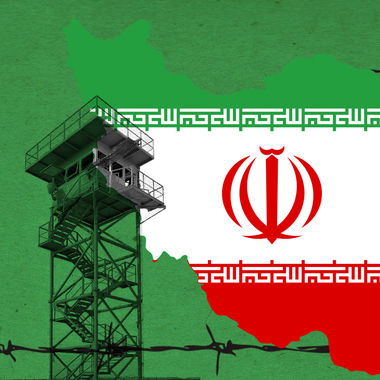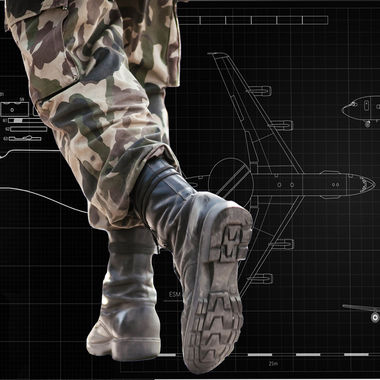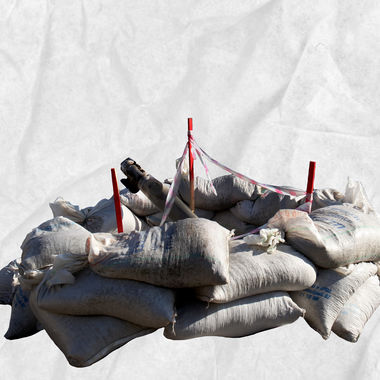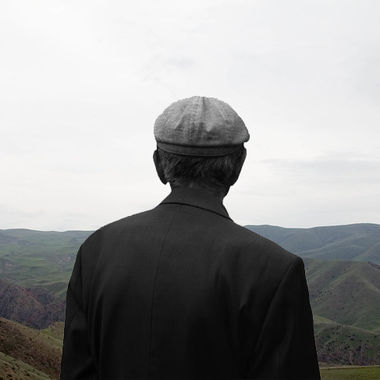Fri Oct 30 2020 · 6 min read
Nagorno-Karabakh and Iranian Public and Foreign Policy

By Hamed Kazemzadeh
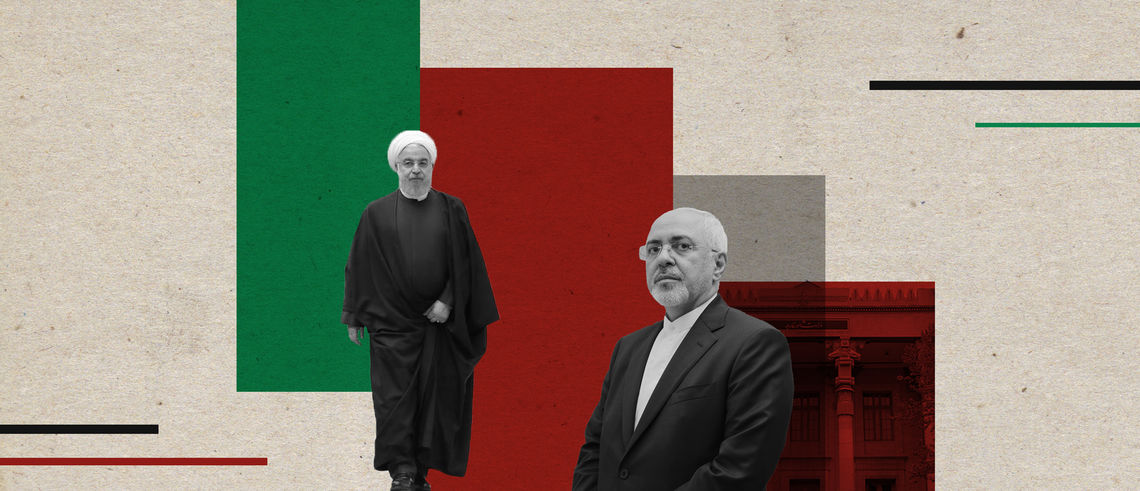
The 2020 Karabakh War has had regional implications for neighboring countries, specifically on Iranian public and foreign policy. When the fighting began on the morning of September 27, 2020 along the Nagorno-Karabakh Line of Contact, Iranian social media and public discourse began swirling as to what should Iranians’ position be in this nearby historical conflict.
First, the Assembly of Northwest MPs in the Parliament of Iran, who represent the Iranian provinces of West Azerbaijan, East Azerbaijan, Ardabil and Zanjan, published the following statement: “According to academic findings and historical documents, Nagorno-Karabakh is part of the Islamic world and UN Security Council Resolutions 822, 853, 874 and 884 also recognize the sovereignty of the Republic of Azerbaijan over it.” They also asked the Ministry of Foreign Affairs to report its latest actions and implementation policies for supporting the Muslim people of the Republic of Azerbaijan and the oppressed Shias of Nagorno-Karabakh based on Articles 3 and 152 of the Constitution of the Islamic Republic of Iran. Besides the MPs’ statement, the Representatives of the Supreme Leader in the same Northwest region jointly stated their support for the Azerbaijani side in the Nagorno-Karabakh conflict: “There is no doubt that Nagorno-Karabakh belongs to the Republic of Azerbaijan and its territories need to return to Azerbaijan, the country of the Ahl al-Bayt (The People of the Prophet’s Home). The Azerbaijani government has acted completely legally and juridically to retake these lands and has sought to implement four UN Security Council Resolutions.”
In both statements, ethnic, religious and linguistic affinities feature prominently. They invoke emotional language and can be seen by an external observer as an invitation to Shia Islamic Jihad for encouraging Shia Azerbaijanis to be on the front lines of War. It should be noted that Ali Khamenei, the Supreme Leader of Iran, comes from a Azeri-speaking Shia family on his father’s side that originates from the Iranian-Azerbaijani community from the city of Khamaneh, in the East Azerbaijan Province of Iran (though he was not born or raised there). Simultaneously, Ali-Akbar Ajaqnejad the official representative of the Iranian Supreme Leader to the Republic of Azerbaijan, who has a lot of influence in the Shia religious institutions of the South Caucasus, congratulated Azerbaijan for its victories on the battlefield and offered condolences to Azerbaijani families for their losses in a video message in the Azerbaijani language in Baku. He also emphasized that Iran and Iranians always support Azerbaijani acts in the territory of Nagorno-Karabakh and called all Azerbaijani casualties “martyrs of Islam.”
Alongside the official statements and public comments by Iranian MPs, Shia scholars and the representatives of the Iranian Supreme Leader across the country, Iranian Foreign Minister Javad Zarif had separate phone conservations with the Foreign Ministries of Azerbaijan and Armenia on the second day of the war and Iranian President Hassan Rouhani had phone conversations with the Prime Minister of Armenia on the fourth day of the war and with the President of Azerbaijan on the ninth day of the war. Both officials called on both sides to exercise restraint, cease fire, put an immediate end to hostilities and restart negotiations based on international law. Interestingly, the current executive team at the Iranian President’s Office is the same group of members from the first mediating delegation in 1992, which resulted in the Tehran Communiqué. It was signed by the acting President of Azerbaijan, Yagub Mammadov, and President Levon Ter-Petrossian of Armenia on May 7, 1992, intending to end the four-year-long hostilities. The key figure of that team was Mahmoud Vaezi, as the special envoy of Iran to the region in 1992, who is the current Presidential Chief of Staff and the most influential person in Iranian foreign policy. He has a close friendship with Azerbaijani President Ilham Aliyev and was awarded the Dostluq (Friendship) Order of the Republic of Azerbaijan on April 21, 2016.
These internal pro-Azerbaijani developments in Iran and the nationalist atmosphere in the Republic of Azerbaijan quickly and intensely affected the public opinion of the Azeri-speaking Shia community in Northwest Iran. Consequently, a movement was formed on social media led by Shia religious institutions and ethnocentric groups. On October 1, protests were organized in several Iranian cities, including the capital, Tehran, and the northwestern city of Tabriz, in support of the Azerbaijani military operation and against Iranian official policy toward Armenia, following a call on social media. These protests ended with slogans of hatred directed against other Iranian ethnic groups and confrontations with anti-riot police.
Apart from this recent development, since the collapse of the Soviet Union, Iran faced new geopolitics in the Caucasus on its northwest border in the 1990s and developed a new policy based on these new conditions. This policy was formed around several axes: preserving security and its territorial integrity, developing bilateral-multilateral economic and cultural relations, emphasizing the geopolitical importance of Iran regarding the transit of goods and energy, as well as reconstructing the regional image of the Islamic Republic of Iran. Then, abandoning some ideological considerations of the Islamic revolutionary context, Tehran tried to pursue a pragmatic policy concerning Baku and Yerevan, especially in the case of the Nagorno-Karabakh conflict. The Iranian authorities decided to set their policy in this area in close cooperation with Russia. Efforts to mediate the Nagorno-Karabakh conflict at the beginning of the 1990s were a clear example of this policy of establishing security and stability on its borders. Emphasis on regional solutions and direct dialogue between parties has been the main approach of Iran's foreign policy toward this question.
Therefore, the Nagorno-Karabakh Question, for Iran, has two dimensions: internal and external. Its internal dimension includes the importance of this question among the people of Northwestern Iran who call themselves Azerbaijani and feel an affinity with the Republic of Azerbaijan. This sentiment has greatly influenced ethnocentric tendencies and strengthened a subtext of the potential separatist movement in the last decade. In addition, the sensitivity of Shia scholars in Qom to the Nagorno-Karabakh question has increased, making it difficult to balance foreign policy for official authorities.
Its external dimension also includes the importance of security and good neighborliness with northern borders. So far, Iran has always officially expressed condolences to Muslims that have died throughout the fighting in Karabakh and emphasized sustaining the territorial integrity of the Republic of Azerbaijan. Iran has repeatedly defended Azerbaijan in the Organization of Islamic Cooperation’s annual statements. Also, Iran has maintained its relations with Armenia at the highest possible level. On the other hand, the close cooperation of the Republic of Azerbaijan with Israel in the military field and Israel's support for the ethnocentric tendencies and the potential separatist movement in Northwest Iran has created another dimension of security considerations.
However, this question keeps playing an important role in Iranian public opinion, and Iran endeavors to maintain a positive balanced policy with both countries. It seems that Iranians see Nagorno-Karabakh as their cultural territory, where one of the most nostalgic parts of their history, the battlefields of the Russo-Persian Wars of the 18th and 19th centuries, took place.
also read
Iran’s Response Following Azerbaijan's Offensive in Artsakh
By Anna Gevorgyan
While Iran's response to the current escalation is neutral and balanced, there are concerns about Azerbaijan's desire for a military solution, Turkey's involvement and the arrival of terrorists in the region.
Termination of the War Seems Distant for Now: Here Is Why
By Vahram Ter-Matevosyan
Ilham Aliyev’s gamble is doomed to fail. His risk calculation and management toolbox is inherently defective. The initial military advantage of his army had clear drivers which the Defense Army of Artsakh has now fully identified, unearthed and contextualized.
War, Nothing But War: The Virtue of Brute Force and the Shortcomings of Diplomacy
By Nerses Kopalyan
The narrow geopolitical framework of the three-decade-old Karabakh conflict is now threatening to become a Eurasian nightmare: Turkey's involvement has sensationalized the war, Iran’s unease has reinforced the confusion, while Russia's perceived passiveness has created much regional anxiety.
Remedial Rights in International Law and Their Relevance to Artsakh
By Sossi Tatikyan
In light of the existential threat, high probability of ethnic cleansing and the already imminent humanitarian crisis in Artsakh, the international community has an obligation to grant remedial recognition to Artsakh.

